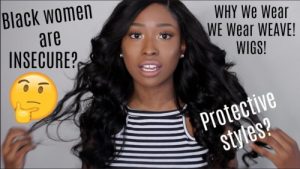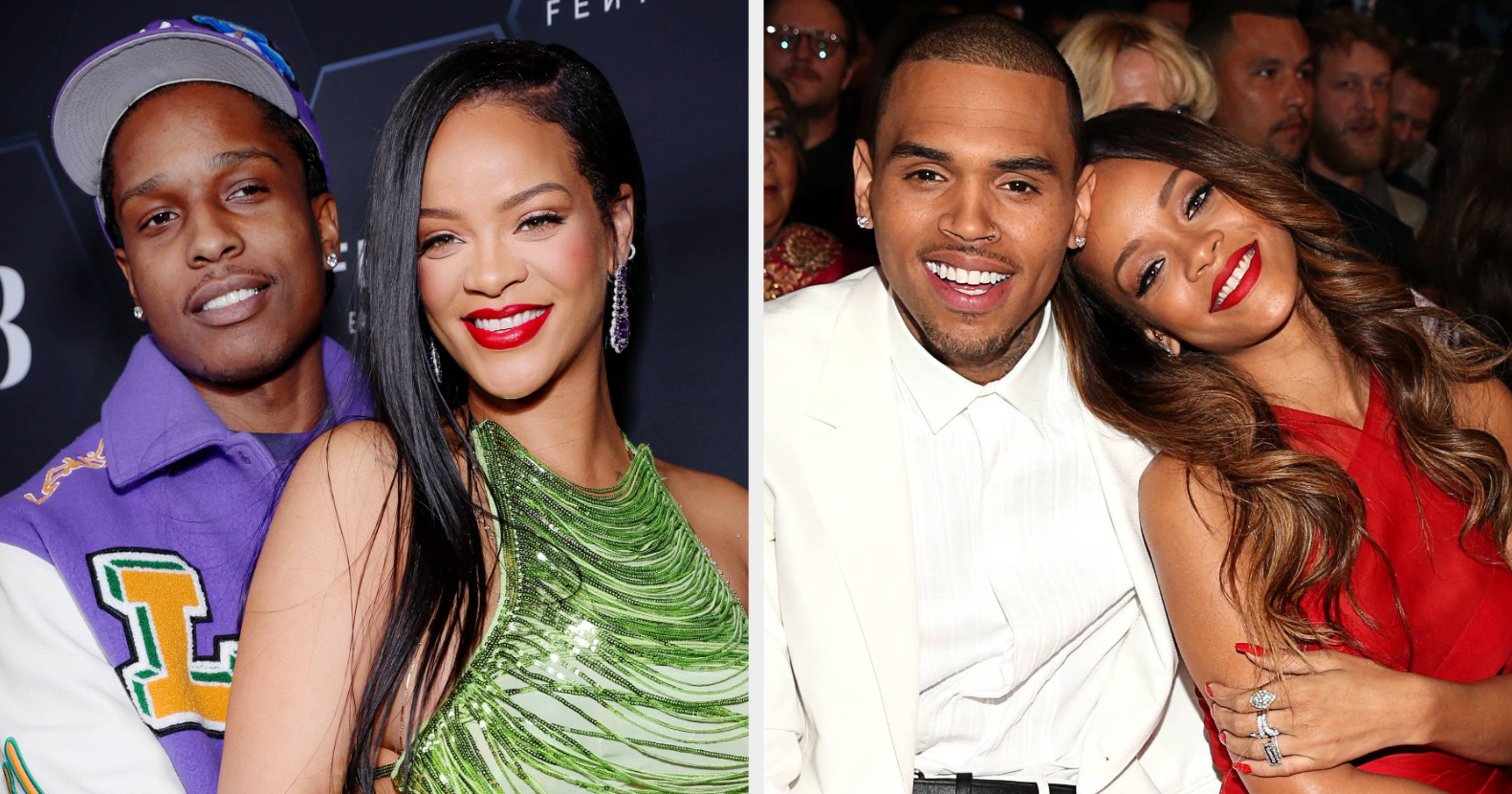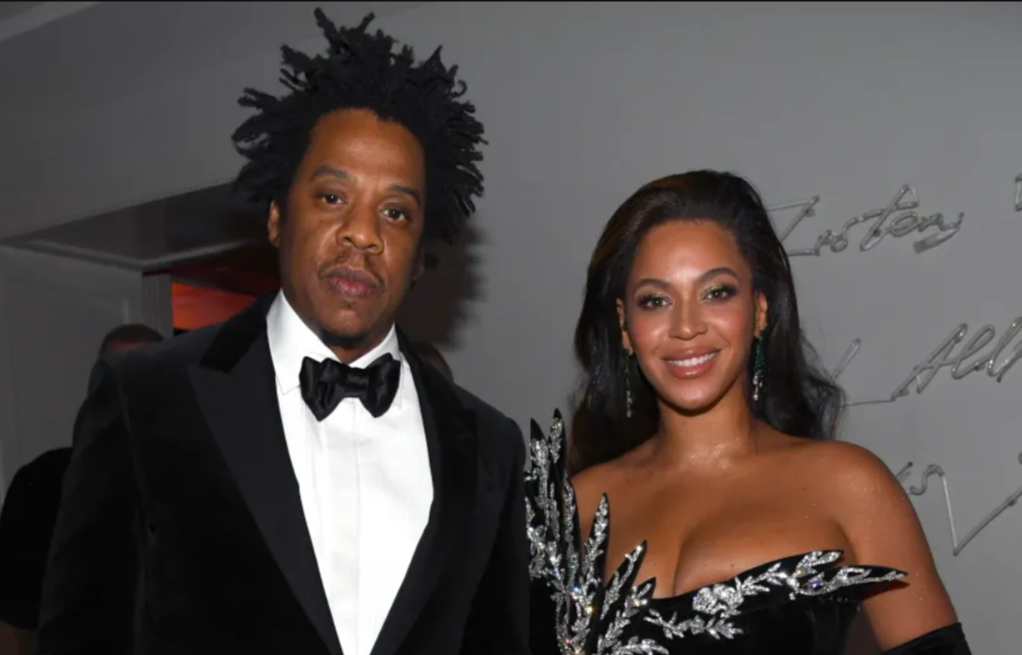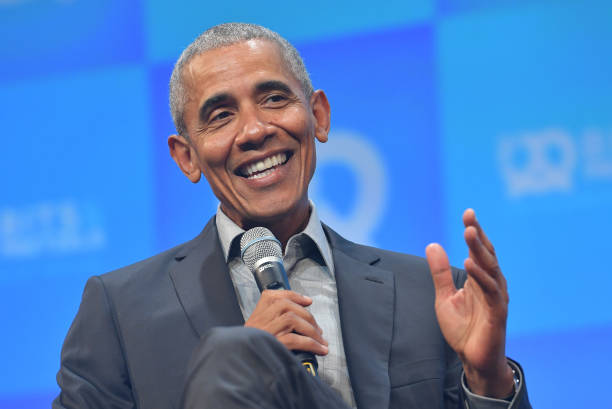(ThyBlackMan.com) For Black Women the versatility of hair is engrained into the culture. Currently, we are in a time whereby more Black Women feel comfortable wearing their hair naturally. Many are coming into themselves in a way that will not allow the status quo to determine what is done with hair. The Eurocentric standards of beauty, and dress, are being challenged like never before. Due to the conversations being had regarding hair, and design more Black Women are taking a stance against cultural appropriation when it comes to their hair. They understand they have a voice, and they are no longer waiting for permission to be heard. With this emergence there are still Black Women that choose to relax their hair, and this is their choice. However, regardless of whether the hair is natural or relaxed the one thing that seems to remain is the frequent use of weave, and hair extensions via braiding. Both weave and extension braids serve many purposed for Black Women. Some usage is about expression, others still feel like a forced situation, and sometimes it’s simply a matter of hair care. If they had not noticed before, Black Women are finding that they aren’t alone in the usage of weave. Black hair is a very lucrative industry, and the source of plenty discussion. Black Women will make many changes to their hair regimen, but the total abandonment of weave, and extensions may never happen. Below are just a few reasons weave, and extensions are here to stay.
Weave / Extensions Protect Hair
Many black women have to find ways to protect their hair from high manipulation, weather, and other hinderances to growth. Some black women are just looking to grow their hair healthy without length retention as a goal. In these situations, weave and extensions may be more of styling tool. In this sense it gives them variety in how they wear their hair. Of course, that is an effort to not get bored with one’s hair. However, most black women that embark on a regimen of protective styling do so to grow their hair out maintaining the length. Some may seek to enhance the volume, and minimizing damage is always a plus. Black hair is strong when cared for but can be very dry making it prone to break. Constant manipulation through styling on a regular basis puts those delicate strands at risk of breaking. Furthermore, there is always a discussion around the subject of heat damage. One doesn’t have to have relaxed hair to encounter heat damage. Blow-drying and flat ironing one’s hair on a regular basis puts the hair at risk of damage that can cause breakage, and it can cause damage to the natural curl pattern of the hair. In the summer there are issues, in some parts of the country, with natural heat and humidity. When it is cold there is a more than normal battle to retain moisture. Protective styling is mandatory if length retention is your hair goal.
dry making it prone to break. Constant manipulation through styling on a regular basis puts those delicate strands at risk of breaking. Furthermore, there is always a discussion around the subject of heat damage. One doesn’t have to have relaxed hair to encounter heat damage. Blow-drying and flat ironing one’s hair on a regular basis puts the hair at risk of damage that can cause breakage, and it can cause damage to the natural curl pattern of the hair. In the summer there are issues, in some parts of the country, with natural heat and humidity. When it is cold there is a more than normal battle to retain moisture. Protective styling is mandatory if length retention is your hair goal.
Protective styling involves finding ways to put your hair, primarily your ends, away so that they can be protected from the above mentioned. Sometimes black women want the benefits of protective styling and flowing manageability all in one. This is where weave comes into play. When the hear is braided to the scalp in preparation for a sew-in weave the braiding is the protective part of the style. There hair is completely protected from manipulation as you no longer have access to it. Granted, this is more protective for the hair then a quick weave with often requires glue. One the hair is put away it is free to grow without hinderance. The weave allows one to try styles they can’t on their hair at this moment, or it allows them to go with manageable styling which we will look into a bit later.
One of the primary methods of protective styling is the extension braids. Additional hair is being braided into one’s own hair and through the braiding process your hair is put away. Braids can come in many forms, sizes, and colors. It can be very professionally conservative, diverse and liberal, or a combination of both. Same as with weave the hair will be put away to grow without interference. With both methods the wearer has to still maintain a moisture routine, and they’d want to be mindful not to keep the styles to long so that hey don’t have an adverse effect. For the sake of protective styling weave and extension aren’t going anywhere.
The Daily Hair Routine.
For some black women the most time-consuming part of their morning is the hair battle; it can even begin the night before. It is said that the hair has a mind of its own, and many black women face that reality every day. Some black women relaxed their hair solely to make the hair more manageable so that they would not have to fight with it. Black women with natural hair find themselves trying to find a hair routine that would save on time. Length, volume and hair type has a lot to do with how long the process will take. For some this morning routine can be frustrating due to trying to get one’s hair where it needs to be for where they are going. However, for others its strictly a matter of having the time. With the demands of work, family, trying to stay healthy, and the need for sleep sometimes black women need a mini vacation from the everyday, or every other day, styling demands of their hair.
In this area weave and extensions by time. Often time different weave styles allow black women to wrap their hair at night, wrap in the morning and go. This is great when the schedule is going to be hectic that week, but you still need your hair to have a certain kind of presentation. There are also weave styles that require a scarf at night, and little to no work in the morning. Sometimes those extra minutes allow for needed sleep, meditation, or having breakfast at home verses spending extra money trying to grab something on the way to work. Sometimes this means having one less head to deal with, so the time spent can go to managing her daughter’s hair before school.
In like fashion braids offer the same reprieve. However, many times there is no prep that is necessary at all. Once just covers the hair at night and get up and go in the morning. This is so beneficial when going through various phases of life that make doing one’s hair a challenge. Many pregnant black women begin to look to braiding their hair as the pregnancy progresses, and most definitely when getting ready for delivery. Having their hair out of the way allows them to tend to their newborn while still looking presentable to themselves. This is also the case when working through any medical issues, or if you have just returned to the gym and the time is tight between the workout and when you need to be at work. Extensions and weave for some black women allows them to put the time spent in getting hair together to use in many other areas.
Employment and Hair Presentation
It is rather unfortunate, and in many was dehumanizing but black hair is still a battle in the work place, and school. Many black women with natural hair are forced to conform to keep their job. Its very easy to say they should “fight the power” and wear their hair as they choose. However, when you need your paycheck to pay bills and raise children the options to fight are not always in your favor. The standard of beauty, as we know, is a white woman. The flow of a white woman’s hair is considered healthy, beautiful, something to be envied, and it is acceptable in every arena. Many black women have fought for validation through their hair, and in doing so relaxed it to attain the look that is deemed beautiful and acceptable. This is not the reason every black woman relaxes their hair, but a good number of them find themselves relaxing to ease backlash they would receive in the workplace hence furthering the identity crisis.
Weave for many black women is the answer to Eurocentric beauty standards regarding hair. Getting their weave put in is how they dodge certain conversations, and consequences in the workplace. What is deemed professional is often related to the current standard of beauty so even protective styles that are neat, and professional can be deemed inappropriate. So much so that braids are often a choice in the unprofessional direction, so weave is the go to option. Many black women that are natural choose weave over relaxing their hair. Though they don’t like having to wear a mask for acceptance in the workplace they still get to wear their natural hair, if time from work permits. This is just another area by which black women are reminded that who they are in the natural sense is unacceptable to many white people in positions of authority. Many battles have been wages in human resources offices all over the country, and unfortunately black women don’t always win those fights. So, its weave or lose your job for some black women…they chose weave.
This kind of discrimination is not only seen in the workplace, but our children face it in school. Every August when school starts there will be stories about the schools that send black girls home because their natural hair was deemed unacceptable, or it was somehow hindering someone from learning. Some girls forced into protective styling that involves sew-ins that are age appropriate because as they go to school and sweat out the silk press, they risk damaging their hair due to heat and high manipulation. Sometimes they can get away with braids, but there are times that is considered “unnatural”, so they are sent home. This can be a serious blow to their self-confidence as they are learning at a very early age black women must hide who they are to be deemed acceptable, and beautiful. There are times the parents only option is risk damaging the child’s hair, relax it, or use and age appropriate sew in whereby they can keep growing their natural hair.
White Women Wear Weave
Why should a black woman have to justify wearing weave? Several reasons as to why it will never go away has been explained, but why are we having to explain as if wearing weave is terrible? These questions are relevant because they shed light on the double standard black women have to face in dealing with white women. No one asks a white woman why she wears weave in her hair. Yes, white women wear weave. That ultimate standard of beauty that is deemed naturally long, healthy, and flowing is often an illusion. There are many white women that heal with hair health issues just as black women do. They are trying to find ways to deal with overly oily hair, limp hair, hair lacking in volume, and of course length retention. In any cases the weave is not protective for them, but it provides added volume to the hair if thin, and desired length. White women are not the only group of women, outside of black women, that wear weave, however the standard of beauty is based on them. White women are not questioned about how much their bundles will cost, nor what they are willing to sacrifice to have them. Reason being is their hair is not policed, it is their own.
Black women often have to hear disparaging comments about their weave from inside of black community, and from those outside the community. Based on their weave they’re character is often times judged regardless of the reason. Braids were often deemed as “hood”, and “ghetto”, but a white woman can appropriate the style hence adding hair to her hair to achieve the look and now it’s trendy. They aren’t being called “trash” because they decided to wear their hair in braids. That degree of judgement is strictly reserved for black women. White women can wear their weave in natural colors or with eccentric highlights and again she’s trendy, but if a black woman does the same, we all know how that will be considered.
There has been white woman that have braved the line and wore their extension braids in the workplace, and they do so without being called unnatural. Their daughters can do the same without receiving ridicule from the administration at school. The bottom line is black women should not have to answer for their weave when white women do the same. Understanding that weave is not merely a black woman thing shed light on how deep the discrimination of black women and hair can go. There are justifiable reasons black women were weaves and braids, and no one should come for them without coming for everyone else that does the same.
Hair is Very Personal
Recording artist India Arie made the song “I am Not My Hair”, however my hair is a part of who I am. No other group of women stand to have their hair policed like black women in this country. One can argue this stems back to a time in this country whereby our people were deemed as merely property so the “owner” could control everything about the being of someone he owned. The racism in this county still wants to tell a black woman what she can, and cannot, do with her hair as if it is still property. We see this when black women have to demand no to have their hair touched and petted like they are on display or are animals.
A black woman’s hair is apart of her identity, and it is personal. I should be able to wear my hair natural, relaxed, braided, or weaved because that’s what I want to do with the hair that belongs to me. Owning one’s hair is a step in the direction of taking back one’s own body, self-confidence and cultural identity. Black hair isn’t like anyone else’s hair, and it has its own set of care and maintenance rules. Weave and extension braids help black woman maintain their hair and allows them diversity in their look. A diversity that they should not have to apologize for. The truth is black hair might not be deemed as the beauty standard, but it is often imitated. Black women are not going to stop wearing weaves not braids because it makes others uncomfortable. They will continue to allow their hair to be personal to them.
Weave and extension braids are not going to disappear. Black women have so many uses for them from hair care, to time value, to personal creativity. They should not have to conform to a beauty standard that is used to oppress who they are in every way…hair included black women should not have to justify their weave while a white woman wears her weave freely without question. While black hair in the workplace, and school, is an ongoing battle there are some places that are coming around in favor of black woman wearing their hair professionally, but natural if they choose. Yes, black women spend quite a bit of money on their bundles for weaves and extensions, however many groups of women spend quite a bit on many different areas of beauty and cosmetics. If black hair is to be highlighted let it be for the art form that it can be…and this involves the use of weave and extensions. As long as black women are not damaging their hair by overusing these methods, or putting them in incorrectly, they shouldn’t have to feel the need to justify their use. It’s a losing argument because black women are simply not going to abandon their weave and extensions.
Staff Writer; Christian Starr
May connect with this sister over at Facebook; https://www.facebook.com/christian.pierre.9809 and also Twitter; http://twitter.com/MrzZeta.














Black hair is beautiful. Love your hair and let it shine.
Someone with common sense. Still amaze how others are trying to patrol black women. Our hair, Who we date and so on. Just leave us alone.
There is a parasite that lives in the environment. It is located on the scalp. It hatches under the scalp skin and spreads down the body. That is what zits are, it is a parasite.
It drinks the blood and causes anemia which then causes the person to be easily influenced. This mixed with constant harassment/bullying creates, depression and then a controlled slave.
That is the hidden secret.
The wigs and weaves are there to allow the parasite to breed. That is the real reason for the wigs & weaves.
If you destroy the woman, you destroy everything else in the family.
That is why your head is itchy. Everyone knows.